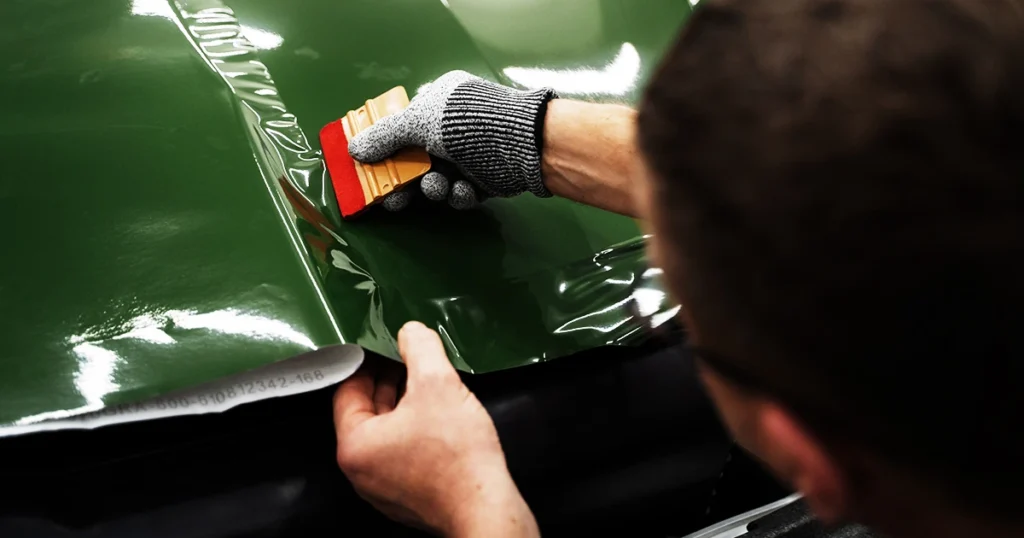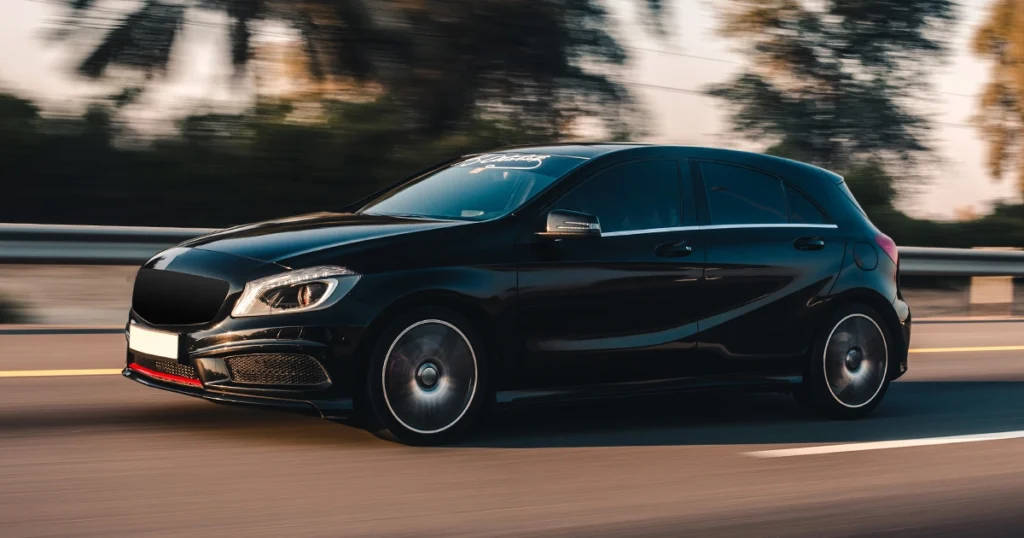
When you want to give your vehicle a fresh look or protect its original paint, an automobile wrap is an excellent choice. It offers a vast array of customization possibilities, from vibrant colors and striking graphics to matte finishes and textured designs. But with so many options available, how do you choose the right one for your vehicle? This comprehensive guide will walk you through the essential factors to consider, ensuring you make an informed decision and are delighted with the final result.
Understanding Your Motivation - Why an Automobile Wrap?
Before diving into the specifics of materials and designs, it’s crucial to understand why you want an automobile wrap in the first place. Your primary motivation will significantly influence your choices.
- Aesthetics and Customization – Are you looking to change your vehicle’s color, add unique graphics, or achieve a specific look that paint can’t easily replicate? If so, your focus will be on color palettes, finishes (gloss, matte, satin, chrome), and graphic design possibilities.
- Paint Protection – Do you want to shield your original paintwork from scratches, chips, UV damage, and environmental contaminants? In this case, the durability, thickness, and self-healing properties of the wrap material will be key considerations.
- Branding and Advertising – Are you a business owner looking to transform your vehicle into a mobile billboard? Here, visibility, longevity, and professional graphic design that effectively communicates your brand message will be paramount.
- Resale Value- A wrap can protect the original paint, potentially preserving the vehicle’s resale value. If this is a concern, a high-quality, easily removable wrap is ideal.
Key Factors to Consider When Choosing an Automobile Wrap
Once you’ve pinpointed your primary motivation, you can delve into the technical aspects and design elements of an automobile wrap.
1. Material Type and Quality
The material of your automobile wrap is fundamental to its appearance, durability, and longevity. The most common material used is cast vinyl, but variations exist.
- Cast Vinyl – This is the gold standard for vehicle wraps due to its exceptional conformability, durability, and ability to hold vibrant colors. It’s manufactured by pouring liquid vinyl onto a casting sheet, resulting in a very thin, stable, and long-lasting film that resists shrinkage and fading. High-quality cast vinyl can last 5-7 years or more with proper care. Brands like 3M, Avery Dennison, KPMF, and Arlon are industry leaders.
- Calendared Vinyl – While less expensive, calendared vinyl is thicker, less conformable, and more prone to shrinkage and cracking over time, especially on complex curves. It’s generally not recommended for full vehicle wraps, but might be suitable for shorter-term applications or flat surfaces.
Always inquire about the specific vinyl manufacturer and product line the installer uses. Reputable shops will openly provide this information.
2. Finish and Color Options
This is where the artistic side of choosing an automobile wrap comes into play. The possibilities are virtually endless.
- Gloss- Mimics the look of traditional high-gloss paint, offering a reflective and sleek appearance.
- Matte- Provides a non-reflective, sophisticated, and often aggressive look. It absorbs light rather than reflecting it.
- Satin- A middle ground between gloss and matte, offering a subtle sheen.
- Metallic and Pearlescent- These finishes contain metallic flakes or pearlescent pigments, creating a shimmering effect that changes with the light.
- Chrome- A highly reflective, mirror-like finish that makes a bold statement.
- Color Shift/Chameleon – These wraps change color depending on the viewing angle, offering a dynamic and eye-catching effect.
- Custom Graphics and Designs – If you have a specific vision, custom-printed wraps allow for intricate patterns, logos, and photographic images.
Consider your vehicle’s existing lines and shape when choosing a finish. Some finishes, like chrome, can accentuate every curve and imperfection, while matte finishes can highlight angles.
3. Durability and Longevity
The lifespan of your automobile wrap depends on the quality of the material, the expertise of the installation, and how well you maintain it.
- Material Warranty- Reputable vinyl manufacturers offer warranties on their materials, typically ranging from 5-7 years for cast vinyl, against fading, cracking, and delamination.
- Installer Warranty- A good installer will also offer a warranty on their workmanship, covering issues like bubbling, peeling, or lifting corners.
- Expected Lifespan- While manufacturer warranties are a good indicator, factors like extreme weather conditions, frequent washing, and exposure to harsh chemicals can impact longevity.
4. Installation Qualitya
Even the highest quality vinyl can look terrible if poorly installed. Automobile wrap installation is an art form that requires specialized training, tools, and experience.
- Certified Installers- Look for installers who are certified by leading vinyl manufacturers (e.g., 3M Certified Installer, Avery Dennison Certified Installer). This indicates they have undergone rigorous training and passed demanding practical tests.
- Portfolio and Reviews- Ask to see examples of their previous work, preferably on vehicles similar to yours. Check online reviews and testimonials.
- Facility- A clean, dust-free, and temperature-controlled environment is crucial for a flawless installation.
5. Maintenance and Care
Once your automobile wrap is installed, proper care will extend its life and maintain its appearance.
- Hand Washing- The best way to clean a wrapped vehicle is by hand washing with mild, pH-neutral car soap and a soft microfiber cloth.
- Avoid Abrasives- Do not use abrasive cleaners, waxes, or polishes that contain petroleum distillates, as these can damage the vinyl.
- Pressure Washing- If using a pressure washer, keep the nozzle at least one foot away from the wrap and avoid directing high-pressure water at seams or edges.
- Immediate Stain Removal- Address bird droppings, tree sap, and insect residue as soon as possible, as these can etch the vinyl.
6. Budget Considerations
The cost of an automobile wrap varies significantly based on vehicle size, complexity of the curves, material type, design intricacy, and the installer’s reputation.
- Full Wrap vs. Partial Wrap- A full wrap will be more expensive than a partial wrap (e.g., hood, roof, mirrors, or graphics).
- Material Cost- Specialty films like chrome or textured wraps are more expensive than standard colors.
- Labor Cost- Highly skilled and certified installers will command higher labor rates, but their expertise is well worth the investment for a quality result.
Obtain detailed quotes from several reputable installers and compare not just the price, but also the materials used, warranty offered, and their portfolio.
The Decision-Making Process
- Define Your Goals- What do you want to achieve with the wrap?
- Research Materials and Finishes- Explore different vinyl types and finishes to find what suits your aesthetic and functional needs.
- Find Reputable Installers- Seek out certified professionals with strong portfolios and positive reviews.
- Get Detailed Quotes- Understand what’s included in the price – material, labor, warranty.
- Ask Questions- Don’t hesitate to ask about maintenance, longevity, and the installation process.
Choosing the right automobile wrap is an investment in your vehicle’s appearance and protection. By carefully considering your motivations, researching materials, prioritizing installation quality, and understanding ongoing maintenance, you can transform your vehicle into a personalized masterpiece that turns heads for years to come.


